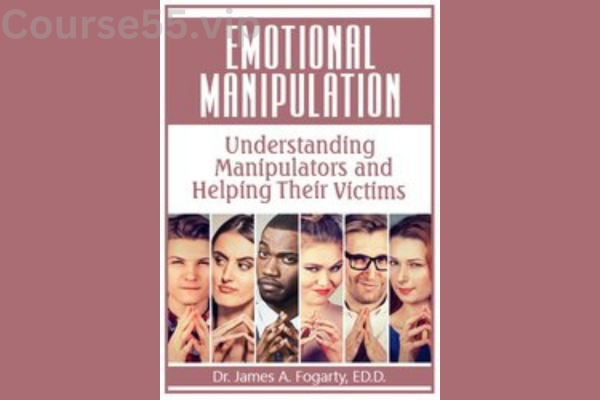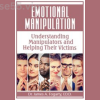-
×
 Becoming Magic By Genevieve Davis
1 × $15.40
Becoming Magic By Genevieve Davis
1 × $15.40 -
×
 Writing Email Copy for B2B Companies By AWAI
1 × $23.10
Writing Email Copy for B2B Companies By AWAI
1 × $23.10 -
×
 Ten Best-Ever Anxiety Treatment Techniques By Margaret Wehrenberg - PESI
1 × $23.10
Ten Best-Ever Anxiety Treatment Techniques By Margaret Wehrenberg - PESI
1 × $23.10 -
×
 New Rules for Treating Trauma: Integrating Neuroscience for Resilience, Connection and Post-Traumatic Growth By Courtney Armstrong - PESI
1 × $23.10
New Rules for Treating Trauma: Integrating Neuroscience for Resilience, Connection and Post-Traumatic Growth By Courtney Armstrong - PESI
1 × $23.10 -
×
 Maine Legal and Ethical Issues for Mental Health Clinicians By Susan Lewis - PESI
1 × $23.10
Maine Legal and Ethical Issues for Mental Health Clinicians By Susan Lewis - PESI
1 × $23.10 -
×
 Perianesthesia Challenges By Delores "Dolly" Ireland - PESI
1 × $23.10
Perianesthesia Challenges By Delores "Dolly" Ireland - PESI
1 × $23.10 -
×
 Using EMDR Across the Lifespan By Robert Tinker - PESI
1 × $23.10
Using EMDR Across the Lifespan By Robert Tinker - PESI
1 × $23.10 -
×
 Trauma-Informed Yoga for Children and Adolescents: Mind-Body Sequencing for ADHD, Anxiety and Post-Traumatic Stress By Kathy Flaminio
1 × $23.10
Trauma-Informed Yoga for Children and Adolescents: Mind-Body Sequencing for ADHD, Anxiety and Post-Traumatic Stress By Kathy Flaminio
1 × $23.10
Emotional Manipulation: Understanding Manipulators and Helping Their Victims By James Fogarty – PESI
$200.00 Original price was: $200.00.$23.10Current price is: $23.10.
SKU: C55vip.11076q5PpNeOM
Category: Download
Tags: Emotional Manipulation, James Fogarty - PESI, Understanding Manipulators and Helping Their Victims
Emotional Manipulation: Understanding Manipulators and Helping Their Victims – Digital Download!

Emotional Manipulation: Understanding Manipulators and Helping Their Victims By James Fogarty – PESI
Overview

Decoding Emotional Manipulation: Identifying Tactics and Empowering Victims
Emotional manipulation is a covert yet deeply impactful form of psychological control that permeates various aspects of life. To fully grasp this phenomenon, it is essential to understand the tactics manipulators employ and recognize how these behaviors manifest in different relationships—whether familial, romantic, or professional. James Fogarty’s course, Emotional Manipulation: Understanding Manipulators and Helping Their Victims, serves as a comprehensive guide for those navigating the complexities of emotional abuse. This resource is particularly valuable for professionals such as therapists, counselors, human resource specialists, and coaches who frequently encounter manipulation in their fields.
Fogarty’s approach prioritizes both recognition and intervention, equipping participants with the necessary skills to identify manipulative behavior and support victims in regaining control over their lives. By integrating theoretical insights with practical techniques, this course stands as an essential tool for fostering healthier interpersonal relationships.
Unpacking Emotional Manipulation
At the core of Fogarty’s course is a deep exploration of emotional manipulation, shedding light on the various tactics used by manipulators. These behaviors include gaslighting, emotional blackmail, and guilt-tripping—strategies that extend beyond romantic relationships to family and workplace settings. For example, gaslighting, a method where manipulators cause victims to question their own reality, can create significant emotional turmoil and confusion.
Understanding the psychological traits of manipulators is equally crucial. Fogarty encourages participants to examine the underlying motivations behind manipulative behaviors, highlighting key characteristics such as insecurity, a need for control, and a lack of empathy. By recognizing these traits, professionals can more effectively identify manipulation while also cultivating compassion for victims trapped in toxic relational patterns.
Key Manipulative Tactics and Their Characteristics
| Manipulative Tactic | Description |
|---|---|
| Gaslighting | Making someone question their perception of reality or sanity. |
| Emotional Blackmail | Leveraging guilt, fear, or obligation to exert control. |
| Guilt-Tripping | Inducing guilt to secure compliance or validation. |
| Love-Bombing | Overwhelming someone with excessive affection to manipulate them. |
| Silent Treatment | Withholding communication as a means of punishment or control. |
By clearly defining these behaviors, the course empowers participants to identify the warning signs of emotional manipulation, ensuring a proactive approach in addressing such dynamics.
Empowering Victims Through Targeted Strategies
A fundamental aspect of Fogarty’s course is victim empowerment, emphasizing recovery methods that help individuals rebuild self-esteem and assertiveness. Overcoming emotional manipulation is a gradual process that requires victims to reclaim their autonomy and confidence.
A core component of empowerment is assertive communication training, which enables victims to express their needs and boundaries effectively. Boundary-setting techniques are also pivotal, serving as protective measures against future manipulation. For instance, assertiveness training enhances a victim’s ability to engage in healthy interactions without succumbing to manipulative pressures.
Key Strategies for Victim Recovery
-
Individual Counseling – Providing a safe space for victims to process emotions and develop self-awareness.
-
Support Groups – Connecting with others who have similar experiences fosters validation and communal healing.
-
Self-Care Practices – Encouraging mindfulness, exercise, and creative outlets to improve emotional well-being.
-
Skill Development Workshops – Enhancing negotiation and communication abilities for navigating difficult situations.
Through these strategies, participants are better equipped to support victims in breaking free from manipulative relationships and cultivating healthier emotional resilience.
Case Studies: Real-World Insights into Manipulative Dynamics
Fogarty’s course incorporates real-life case studies, offering practical illustrations of how emotional manipulation unfolds in various settings. These examples provide valuable lessons on identifying manipulation and applying intervention strategies effectively.
For instance, one case study may focus on a romantic relationship in which emotional blackmail is used to exert control. Participants engage in discussions about how the victim might recognize the manipulation and what actionable steps they can take to regain autonomy.
Key Lessons from Case Studies
-
Critical Reflection – Encouraging individuals to analyze past experiences and recognize patterns of manipulation.
-
Intervention Strategies – Identifying effective methods for supporting victims and addressing manipulative behaviors.
-
Conflict Resolution Techniques – Learning how to confront manipulators while prioritizing personal well-being.
By exploring these scenarios, participants gain hands-on experience in navigating emotional manipulation, enhancing their ability to foster healthier relational environments.
Developing Self-Awareness: A Crucial Step in Healing
Self-awareness is a foundational element in overcoming emotional manipulation. Victims must acknowledge their experiences and engage in self-reflection to identify manipulative patterns. Fogarty emphasizes this as a crucial step in healing, guiding participants through techniques that encourage personal insight.
Techniques for enhancing self-awareness include:
-
Mindfulness Practices – Helping individuals become more attuned to their emotions and reactions.
-
Therapeutic Journaling – Providing a structured way for victims to document experiences and gain clarity.
-
Reflective Exercises – Encouraging individuals to critically assess their relationships and recognize unhealthy patterns.
By fostering self-awareness, victims develop the insight needed to disengage from manipulative dynamics and prevent future occurrences.
Therapeutic Approaches to Recovery
Therapy plays an essential role in healing from emotional manipulation. Fogarty highlights several therapeutic techniques designed to support victims in regaining emotional stability.
Among these methods, Cognitive-Behavioral Therapy (CBT) stands out as a powerful tool for challenging distorted thought patterns and rebuilding self-esteem. By replacing negative beliefs imposed by manipulators with healthier perspectives, victims can foster a stronger sense of self-worth.
Additional Therapeutic Techniques
-
Narrative Therapy – Encouraging victims to reframe their personal stories in an empowering way.
-
Group Therapy – Utilizing shared experiences to create a supportive environment for healing.
-
Eye Movement Desensitization and Reprocessing (EMDR) – Aiding individuals in processing traumatic experiences related to manipulation.
By incorporating a diverse range of therapeutic approaches, the course underscores the importance of tailored recovery strategies that address the unique needs of each victim.
The Power of Support Networks in Healing
A strong support system is a crucial component of recovery from emotional manipulation. Fogarty emphasizes the role of positive influences in helping victims rebuild confidence and navigate their healing journey.
Key Elements of an Effective Support Network
-
Empathetic Listeners – Trusted friends or family members who provide a safe, judgment-free space.
-
Support Groups – Communities of individuals with shared experiences that foster mutual understanding.
-
Professional Guidance – Therapists and counselors who offer specialized support tailored to emotional recovery.
By surrounding themselves with positive relationships, victims can accelerate their healing process and develop the strength to maintain healthier interpersonal boundaries.
Conclusion
James Fogarty’s course, Emotional Manipulation: Understanding Manipulators and Helping Their Victims, serves as an invaluable resource for professionals and individuals alike. By equipping participants with insights into manipulative tactics and effective empowerment strategies, the course fosters a comprehensive understanding of how to combat emotional abuse.
Fogarty’s approach not only informs but also empowers, ensuring that those affected by emotional manipulation can reclaim their autonomy and well-being. By promoting awareness, self-reflection, and therapeutic recovery, this course plays a crucial role in fostering resilience and healthier interpersonal relationships across all aspects of life.
Frequently Asked Questions:
Business Model Innovation: We operate a group buying strategy, allowing participants to share costs and access popular courses at reduced prices. This model benefits individuals with limited financial resources, despite concerns from content creators about distribution methods.
Legal Considerations: The legality of our operations involves complex issues. Although we don’t have explicit permission from course creators to resell their content, there are no specific resale restrictions stated at the time of purchase. This ambiguity creates an opportunity for us to provide affordable educational resources.
Quality Control: We ensure that all course materials purchased are identical to those offered directly by the creators. However, it’s important to understand that we are not official providers. As such, our offerings do not include:
– Live coaching calls or sessions with the course author.
– Access to exclusive author-controlled groups or portals.
– Membership in private forums.
– Direct email support from the author or their team.
We aim to reduce the cost barrier in education by offering these courses independently, without the premium services available through official channels. We appreciate your understanding of our unique approach.
Be the first to review “Emotional Manipulation: Understanding Manipulators and Helping Their Victims By James Fogarty – PESI” Cancel reply
You must be logged in to post a review.














Reviews
There are no reviews yet.